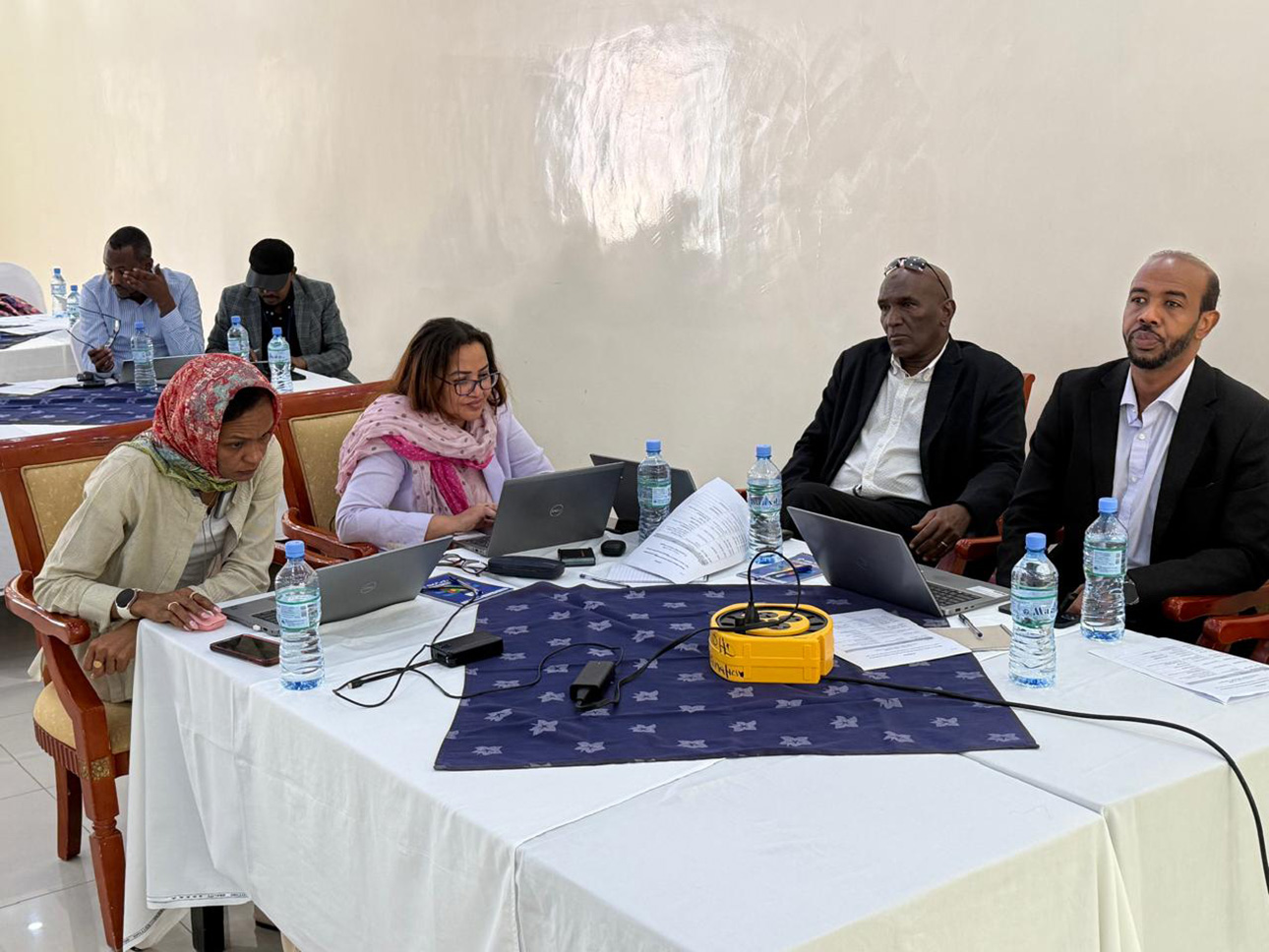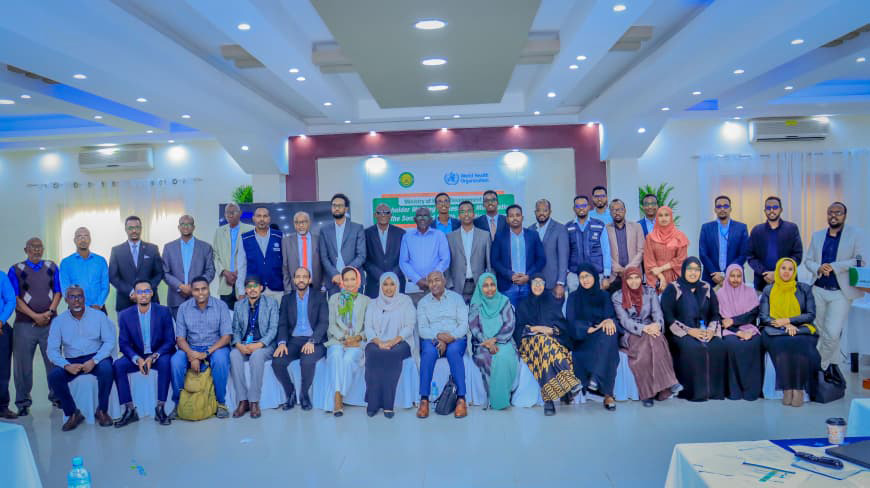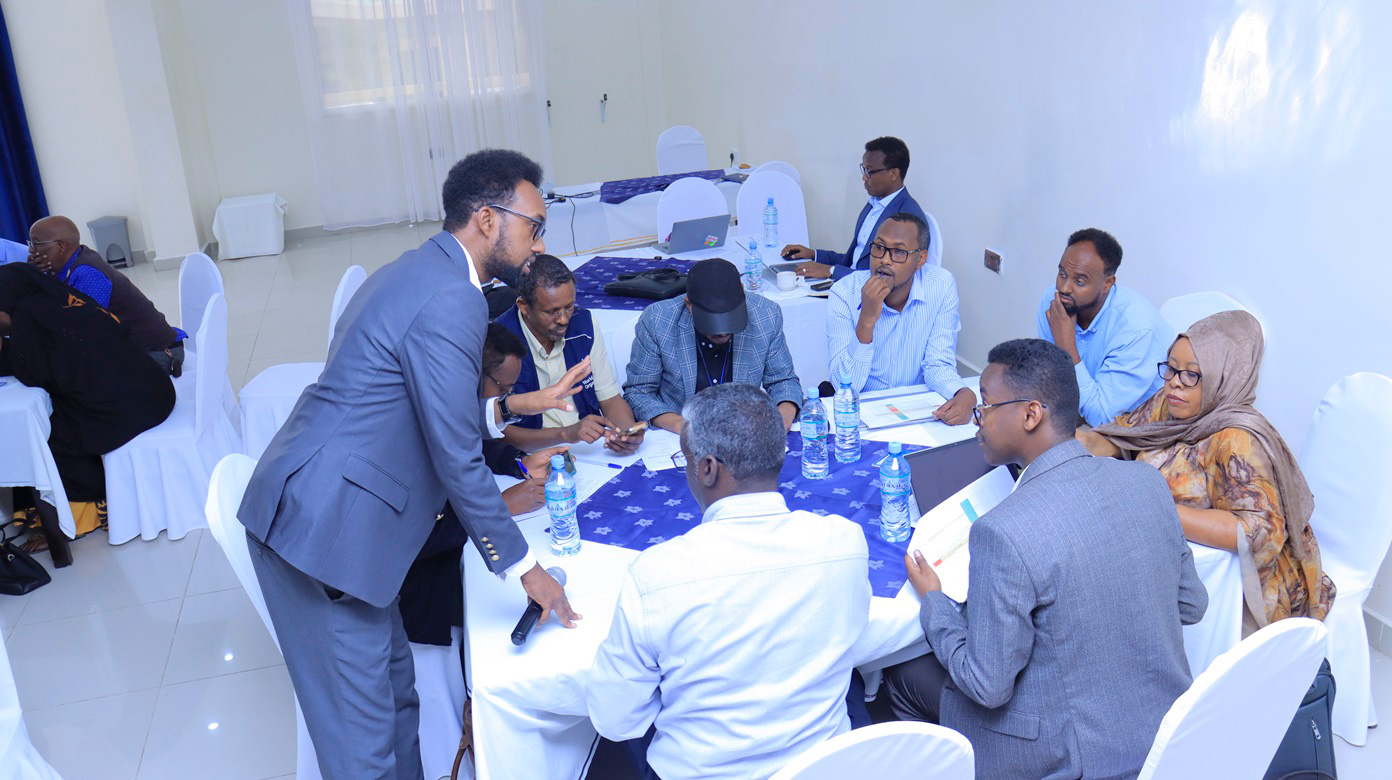 21 August 2025, Mogadishu, Somalia – The World Health Organization (WHO) is working alongside the Somaliland Ministry of Health Development (MoHD) and partners to improve public health services and strategic planning. A key component of the drive is the development of an operational plan for health priorities to guide health development in Somaliland.
21 August 2025, Mogadishu, Somalia – The World Health Organization (WHO) is working alongside the Somaliland Ministry of Health Development (MoHD) and partners to improve public health services and strategic planning. A key component of the drive is the development of an operational plan for health priorities to guide health development in Somaliland.
On 18–19 August 2025, WHO Somalia and MoHD held a high-level meeting in Hargeisa to review Somaliland’s health priorities for 2026–2027. Attended by senior Ministry officials, WHO Somalia technical experts and representatives from the United Nations Children’s Fund (UNICEF), international partners and other key stakeholders, discussions focused on aligning Somaliland’s priorities with partner strategies to ensure a coordinated approach to meeting community health needs.
During the meeting, MoHD officials highlighted the importance of strong collaboration with international partners to achieve national health goals. In response, WHO Somalia pledged ongoing support for Somaliland as it strengthens its health systems, works to ensure access to quality care and advances universal health coverage.
“Working together with WHO on this operational plan is an important move for us as we work to strengthen our health system and meet the real needs of our people,” said the Director of Planning of Somaliland MoHD, Dr Khalid Ali Ahmed. “This plan is a testament to our shared promise to make vital services more accessible and to join forces with partners so that people across Somaliland can lead healthier lives."
The final operational plan will outline a clear, actionable strategy to guide future health interventions and investments, strengthening the health sector's capacity to deliver essential services to all populations, including those in remote and underserved areas.
Aligning health system priorities
The main objective of the meeting was to match the Ministry’s priority goals with those of international partners and local organizations that provide direct support to health services. Alignment is essential to avoid duplication, ensure efficient use of resources and create a single operational framework to guide coordinated action over the next 2 years.
 The operational plan will serve as a blueprint for strengthening health systems, shaping future health projects and improving the delivery of essential services. It will set out clear monitoring and implementation mechanisms, helping MoHD and partners track progress, respond to emerging challenges and remain accountable to the government and the communities being served.
The operational plan will serve as a blueprint for strengthening health systems, shaping future health projects and improving the delivery of essential services. It will set out clear monitoring and implementation mechanisms, helping MoHD and partners track progress, respond to emerging challenges and remain accountable to the government and the communities being served.
By combining strategic planning with staff capacity-building, the initiative aims to enhance the skills and systems necessary to translate health priorities into tangible impact on the ground.
“This plan isn’t just paperwork – it’s a promise to work together for better health in Somaliland. By teaming up with our partners and making sure we’re all moving in the same direction, we can use our resources wisely, help those who need it most and make our communities stronger. WHO is glad to join hands with the Ministry of Health Development and others to turn these goals into real changes for the people of Somaliland,” said WHO Somalia Deputy Representative Dr Kamil Mohamed.
 During the 2-day meeting in Hargeisa, WHO and MoHD laid out new health priorities to tackle the most significant gaps in Somaliland’s health system. By coming together, these efforts will lead to:
During the 2-day meeting in Hargeisa, WHO and MoHD laid out new health priorities to tackle the most significant gaps in Somaliland’s health system. By coming together, these efforts will lead to:
a finalized and validated operational plan for health priorities 2026–2027;
a clear framework for implementation, monitoring and evaluation;
stronger government ownership and leadership in the health sector;
improved collaboration and coordination among partners; and
enhanced capacity of WHO and MoHD staff to manage and deliver results.
Somalia’s health sector is going through tough times. With funding stretched thin, working together and making the most of every resource matters more than ever in advancing our shared vision of a future in which every community has equitable access to the care they need.
By building strong and resilient health systems, we can protect the well-being of people not just today, but for generations to come.
For more information, please contact:
Khadar Hared,
Communication Officer, WHO Somalia
Tel: +252619800011
Email:








